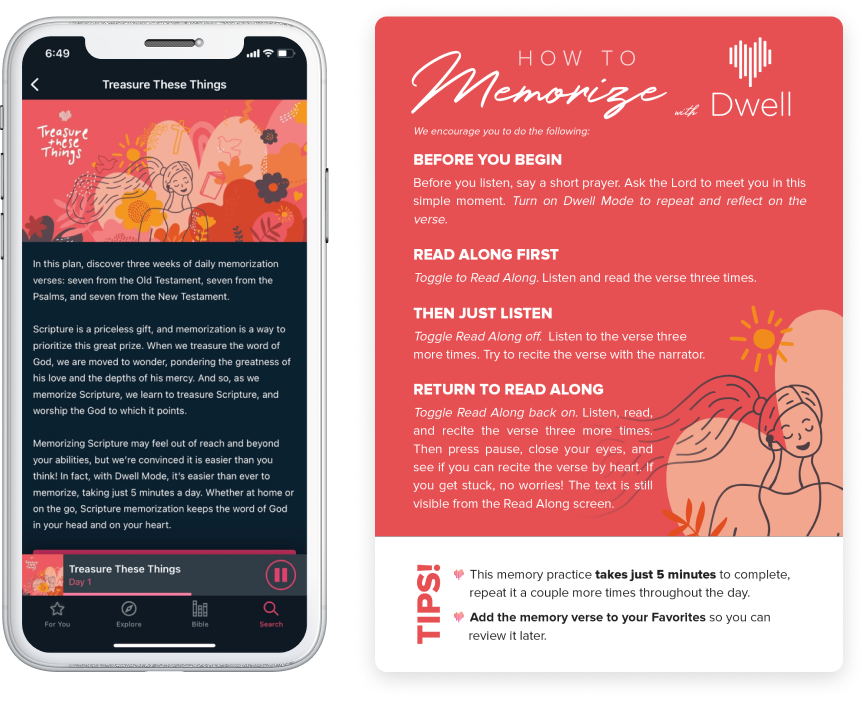Treasuring the Word

If you grew up in or around the church, memorizing passages of Scripture was likely a central part of your Sunday School experience.
A small army of faithful volunteers sang, brought puppets to life, and drew from a bottomless well of choreographed hand motions, all with the hopes of sending you home with a small portion of Scripture, not only written on the coloring sheet in your lap, but sealed within your head, and by the grace of God, upon your heart.
For many of us, this was both the beginning and end of our experience with Scripture memorization. Though we may still value the idea of memorization, it is likely towards the bottom of the “when I get around to it” list of spiritual disciplines. What place, if any, does Scripture memorization have in the day-to-day rhythms of our lives?
This summer, join Dwell and rediscover, or experience for the first time, the joy of memorizing Scripture (hand motions optional).
In fact, when we memorize portions of the Bible, we step into one of the most ancient forms of biblical engagement.
For most of human history, including the majority of the Christian faith, private book ownership (not to mention an app on a phone!), was an entirely foreign concept. When early Christians sat down for their daily “quiet time,” did they brew their coffee, grab a journal, and choose from one of a dozen Bibles on their shelf? Not exactly. In fact, the only way to orient their lives to the life of Christ was to worship and hear Scripture read in community. Maybe Sunday School was on to something after all!
In the early Church, Christians heard and memorized Scripture as they worshiped, moving from a gathered experience into personal reflection within the stillness of the heart. If one’s daily life was to be shaped by and oriented to the word of God, it was first encountered in worship, and then internalized and carried within one’s very being. And though we today have countless Scripture resources at our fingertips, the invitation before us is an ancient one: we must learn, like Mary, to treasure in our hearts God’s word spoken to us (Luke 2:19). And so, whether it is public reading or personal engagement, we receive the Scriptures with a heart of worship and wonder.
In this way, memorization is a close relative of meditation. We learn the words of Scripture, not as a badge of honor or sign of intellectual ability, but to invite the Lord to transform our daily deeds as we dwell upon his word. It is, as the psalmist reminds us, a journey of learning to “treasure your word in my heart, so that I may not sin against you” (Ps 119:11 NSRV).

